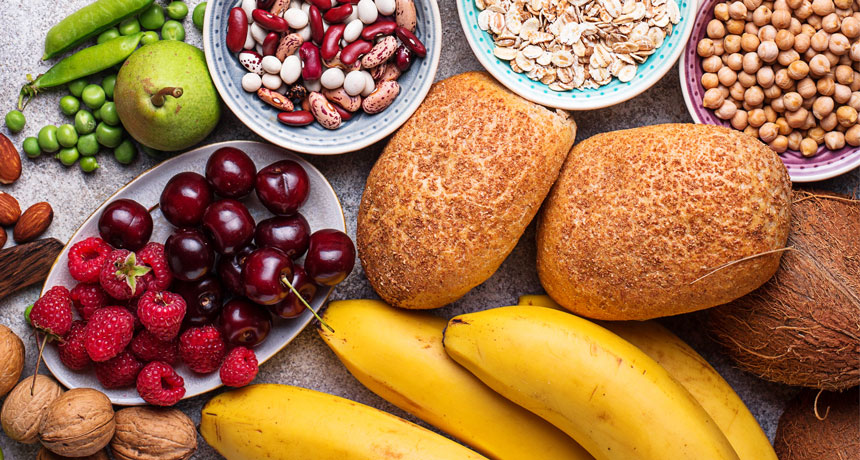
ALWAYS GOOD ADVICE Eating more foods high in fiber has been recommended to prevent cancer. Now researchers say high-fiber diets may also help a type of immune therapy work better against tumors.
Yulia Furman/Shutterstock
What you eat can affect how well immune therapies work against cancer. High-fiber diets may change gut microbes and make these therapies more effective, but taking probiotics could do the opposite.
Researchers looked at people with melanoma skin cancer who were getting a kind of immune therapy called PD-1 blockade or checkpoint inhibition (SN: 10/27/18, p. 16). Those who ate a high-fiber diet were five times as likely to have the therapy halt the growth of or shrink tumors as those on diets low in fiber, researchers reported February 27 in a news conference held by the American Association for Cancer Research.
High-fiber diets seem to foster a more diverse collection of gut microbes, which is associated with better outcomes from PD-1 blockade therapy, said Christine Spencer, a research scientist at the Parker Institute for Cancer Immunotherapy in San Francisco. But probiotic supplements — pills or food supplements that are supposed to contain helpful bacteria — actually reduced the diversity of microbes in cancer patients’ guts, the researchers found.
Only about 20 to 30 percent of cancer patients see their tumors stop growing or shrink with PD-1 blockade immunotherapy. Spencer and colleagues had previously determined that bacteria in the Ruminococcaceae family seem to improve responses to the treatment, but the researchers didn’t know why some people have more of those helpful bacteria than others.
Diet is one way to change a person’s microbiome, the collection of bacteria, fungi and other microbes that live on and in the body (SN: 5/30/15, p. 18). So Spencer and colleagues at MD Anderson Cancer Center in Houston surveyed 113 people with melanoma about their diets, including use of probiotics, and collected fecal samples from each participant.
The 46 patients who consumed the highest amount of fiber in their diets, including fruits, vegetables and whole grains, tended to have more of the bacteria associated with a response to the immune therapy, the team found. And, in fact, those patients tended to get a positive effect from the therapy. Participants who ate more processed meat and excess sugar had fewer of those bacteria, and their tumors were more likely to grow despite immune treatment.
More than 40 percent of patients said they were taking probiotics. Those people had lower gut microbe diversity than people who didn’t take the supplements. “A lot of people have perceptions that probiotics will have health benefits, but that might not be the case for cancer patients,” Spencer said.
She and her colleagues will present more data from the study, including on probiotics’ effect on immune therapy, on April 2 in Atlanta during the cancer research association’s annual meeting.
The new work adds to a growing number of recent studies that have hinted that probiotics may not offer the health benefits doctors and patients have hoped for.
While the data are preliminary, the study suggests that there may be ways to improve immunotherapy for cancer patients, says Cynthia Sears, an infectious diseases specialist at Johns Hopkins University School of Medicine. “It’s intriguing and should definitely be followed up,” she says.
Many studies have linked high-fiber diets to decreased cancer risk and other health improvements. Even if eating more fruit and vegetables doesn’t boost immune therapy’s effectiveness, Sears says, “the upside is you’re probably not hurting anyone with a high-fiber diet.”







